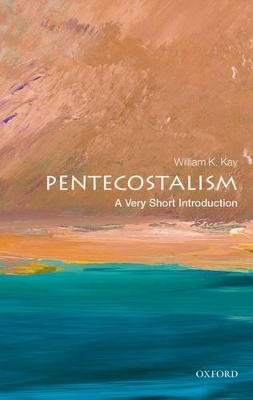Very Short Introductions
1 total work
In religious terms Pentecostalism was probably the most vibrant and rapidly-growing religious movement of the 20th century. Starting as a revivalistic and renewal movement within Christianity, it encircled the globe in less than 25 years and grew in North America and then in those parts of the world with the highest birth-rates. Characterised by speaking in tongues, miracles, television evangelism and megachurches, it is also noted for its small-group meetings,
empowerment of individuals, liberation of women and humanitarian concerns.
Without the financial and military support of the state (as was the case with communism), it flourished in almost every conceivable socio-political environment. Even in Europe, where religion most frequently appeared tired and out of date, Pentecostalism might draw large crowds or, within mainline Christian congregations, flourish in a more muted charismatic form. When these two forms are added together, Pentecostalism and neo-Pentecostalism are thought to account for around 450 million
people.
William K Kay outlines the origins and growth of Pentecostalism, looking at not only the theological aspects of the movement, but also the sociological influences of its political and humanitarian viewpoints.
ABOUT THE SERIES: The Very Short Introductions series from Oxford University Press contains hundreds of titles in almost every subject area. These pocket-sized books are the perfect way to get ahead in a new subject quickly. Our expert authors combine facts, analysis, perspective, new ideas, and enthusiasm to make interesting and challenging topics highly readable.
empowerment of individuals, liberation of women and humanitarian concerns.
Without the financial and military support of the state (as was the case with communism), it flourished in almost every conceivable socio-political environment. Even in Europe, where religion most frequently appeared tired and out of date, Pentecostalism might draw large crowds or, within mainline Christian congregations, flourish in a more muted charismatic form. When these two forms are added together, Pentecostalism and neo-Pentecostalism are thought to account for around 450 million
people.
William K Kay outlines the origins and growth of Pentecostalism, looking at not only the theological aspects of the movement, but also the sociological influences of its political and humanitarian viewpoints.
ABOUT THE SERIES: The Very Short Introductions series from Oxford University Press contains hundreds of titles in almost every subject area. These pocket-sized books are the perfect way to get ahead in a new subject quickly. Our expert authors combine facts, analysis, perspective, new ideas, and enthusiasm to make interesting and challenging topics highly readable.
